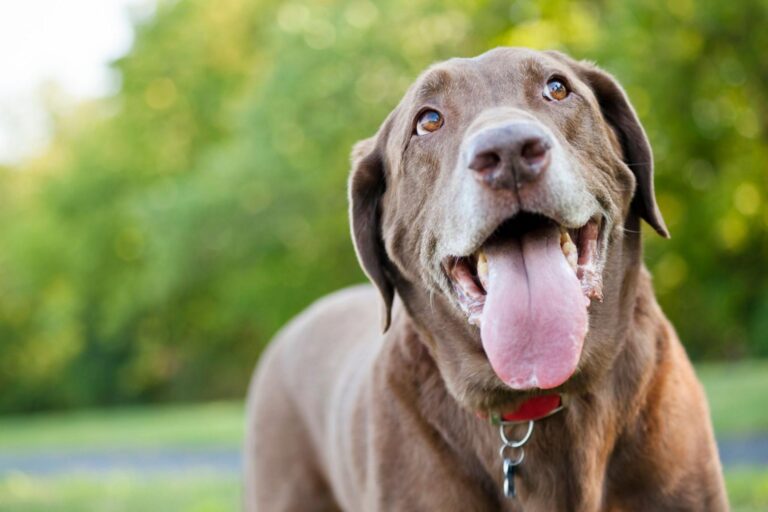
When it comes to your dog’s health, gut health is often overlooked but essential for their overall well-being. A balanced diet and regular exercise can make a significant difference in digestion and immunity. You’ll want to pay attention to what you feed your furry friend and how active they are. Curious about specific strategies that could enhance their gut health? Let’s explore some expert tips that can help your dog thrive.
Understanding the Importance of Gut Health in Dogs
When it comes to your dog’s overall health, you might be surprised to learn just how essential gut health really is. A healthy gut not only aids in digestion but also plays a significant role in your pup’s immune system.
It’s home to trillions of bacteria that help break down food, absorb nutrients, and fend off harmful pathogens. When your dog’s gut is balanced, they’re more likely to enjoy higher energy levels and better skin and coat health. Additionally, incorporating a supplement with a proprietary blend of gut bacteria can further enhance digestive health.
Plus, a well-functioning gut can even enhance your dog’s mood! By prioritizing gut health, you’re setting the stage for a happier, healthier life.
Signs of Poor Gut Health in Your Dog
Have you noticed your dog acting differently or experiencing unusual symptoms? It might be a sign of poor gut health.
Watch for diarrhea or constipation; these can indicate digestive distress. If your pup’s coat looks dull or they’re scratching more than usual, it could be linked to gut issues as well.
Don’t overlook sudden weight changes, either—whether it’s weight loss or gain, it often points to an imbalance.
Bad breath or excessive gas can signal an upset stomach too.
Finally, if your dog seems lethargic or has a decreased appetite, it’s time to pay attention.
Recognizing these signs early can make a big difference in getting your furry friend back on track to better health!
Nutritional Strategies for a Healthy Gut
How can you make certain your dog’s gut stays healthy? Start by feeding them a balanced diet rich in high-quality proteins and wholesome grains.
Incorporate fresh fruits and veggies, like pumpkin or sweet potatoes, which provide fiber and essential nutrients. Avoid processed foods packed with fillers and artificial additives that can irritate their digestive system.
You might also consider rotating their protein sources to prevent food sensitivities. Regular feeding schedules can help maintain a steady digestive rhythm, too.
Finally, make sure your dog stays hydrated; fresh water is vital for proper digestion.
The Role of Probiotics and Prebiotics
While many pet owners focus on diet alone, incorporating probiotics and prebiotics into your dog’s routine can greatly enhance their gut health.
Probiotics are beneficial bacteria that help maintain a balanced gut microbiome, improving digestion and boosting immunity. You can find them in various forms, like supplements or fermented foods.
Prebiotics, on the other hand, are fibers that feed these good bacteria, helping them thrive. Foods rich in prebiotics include sweet potatoes, bananas, and chicory root.
By adding both probiotics and prebiotics to your dog’s diet, you’ll support their digestive system, promote nutrient absorption, and potentially prevent gastrointestinal issues.
Your furry friend will thank you for keeping their gut happy and healthy!
Regular Exercise and Its Impact on Digestion
Regular exercise plays an essential role in maintaining your dog’s digestive health. When your pup gets moving, it stimulates their gastrointestinal tract, helping food move through their system more efficiently. This can reduce the risk of constipation and promote regular bowel movements.
Plus, exercise helps maintain a healthy weight, which is vital since obesity can lead to digestive issues.
Engaging in daily walks or playtime also reduces stress, which can negatively impact digestion. As you bond with your furry friend during these activities, you’re not just improving their physical health but also enhancing their overall well-being.
When to Consult Your Veterinarian
When should you consider reaching out to your veterinarian about your dog’s gut health? If your pup’s experiencing persistent diarrhea, vomiting, or a sudden change in appetite, it’s time to pick up the phone.
Also, if you notice excessive gas, bloating, or any signs of discomfort, don’t hesitate to consult your vet. These could be indicators of underlying issues that need professional attention.
Additionally, if you’re thinking of changing your dog’s diet or introducing new supplements, it’s wise to get your vet’s input first. They can guide you on the best options for your dog’s specific needs.






